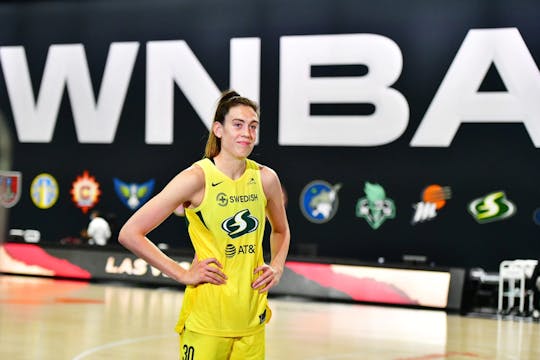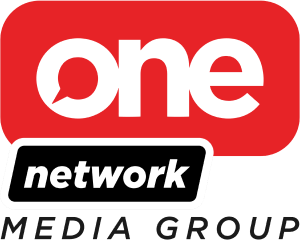While some people continue to debate on whether or not professional athletes should “stick to sports”, it was never a question for WNBA players. They have been speaking out on various social, cultural, and political issues for many years.
As women in a male-dominated sport, they understand the need to fight the systemic problems that prevent them from getting what they deserve. And being part of a league comprised mostly of Black women, they cannot be silent on the discrimination and racial injustices that their communities face everyday.
Here are a few WNBA players who have taken concrete actions to champion their advocacies.
Breanna Stewart, Seattle Storm
#MeToo
In 2017, Breanna Stewart bravely shared her story of surviving childhood sexual abuse. By writing about her #MeToo experience on the Player’s Tribune, she wanted to let victims know that they are not alone. A lot of women reached out to her after her revelation, thanking her for her courage and sharing their own unfortunate stories of abuse, which are more rampant than people would care to admit.
Stewart has since partnered with RAINN (Rape, Abuse & Incest National Network), an anti-sexual violence organization that operates the National Sexual Assault Hotline in the United States. RAINN also carries out programs to prevent sexual violence, help survivors, and ensure that perpetrators are brought to justice. Stewie has helped in raising awareness and funds for the organization and was recently named to its National Leadership Council.
One of the most powerful voices in the WNBA, Stewart has also been known for speaking out against racial injustice and promoting LGBTQ inclusion and abortion rights, among others.
At the start of the 2020 season, she led a pregame ceremony devoted to Breonna Taylor, who became the players’ inspiration for their “Say Her Name” campaign throughout the entire bubble. When Stewart received her championship ring after her MVP year in 2018, she also made a strong statement about abortion rights by wearing a shirt that read: “Abortion is: a human right, a constitutional choice, a personal choice, health care, lifesaving, gender equality, owning your own body, not a crime, not up for debate.”
Elizabeth Williams, Atlanta Dream
Healthcare
As a daughter of medical health professionals, Elizabeth Williams has made it her mission to understand the healthcare system. Her quest started as a student at Duke when she took up psychology as a pre-medicine requisite. However, once the COVID-19 infections reached global scale, she knew that she had to use her platform to help brew conversations about the pandemic.
Williams hosted an Instagram live show called “E Talks with Docs” with the goal of raising awareness and giving accessible and credible information.
“Obviously, medicine is something I’ve been interested in for a really long time, and then with [COVID-19] going on, I thought it would be really cool, because people always have so many questions, to have different doctors to kinda answer questions and just talk to. Now it’s this (Instagram) Live series,” said Williams.
Soon after, when the vaccine was created, she had another thing to tackle. Despite its availability, a lot of people were apprehensive to receive the quickly developed vaccines. Her colleagues were especially skeptical, worrying about long-term side effects, decrease in their athletic ability, and overall potential harm to their body. This comes after misinformation about the vaccine and its effects cluttered social media.
Instead of falling into the same trap, Williams pushed for the education of players and fans. With the help of the players’ union, she gathered resources and created a series of online meetings with WNBA players where they discussed how vaccines work, debunking myths and understanding the history of vaccine hesitancy especially in Black communities.
“I met these educational sessions [with] skepticism, and through them the ignorance has peeled back. I not only feel comfortable taking the vaccine, but I also feel comfortable advocating for people to be educated on it,” said 2016 MVP Nneka Ogumike.
Maya Moore, Minnesota Lynx
#WinWithJustice
For Maya Moore, her fight goes beyond winning titles on the court. She also wants to win with justice in court.
The 31-year-old superstar stunned the basketball world when she announced in 2019 that she was going to take a sabbatical from the game. At that time, it wasn't clear why a four-time champion and former league MVP chose to turn away from the sport at the peak of her career.
Eventually, it all made sense. Moore dedicated her time advocating for social justice reform, particularly in helping fight for the freedom of Jonathan Irons, a family friend he met in 2007 while doing prison ministry work. Irons, who had been imprisoned for over two decades, was tried as an adult for a burglary charge when he was just 16 years old. He was sentenced to 50 years in prison, but Moore and her family discovered that he was wrongfully convicted after studying his case.
Moore's decision to put her career on hold paid off. On March 9, 2020, Irons' conviction was overturned, and he was finally released from the Jefferson City Correctional Center in July.
A few months later, Moore and Irons got married. They have been working together on the “Win With Justice” social action campaign, which seeks to advance a fair and equitable criminal justice system. Through this advocacy, they want to redefine what a “win” means for a prosecutor, which for so long had been "a tally of convictions and trial results often resembling a sports scoreboard."
"If we continue to quantify and value 'win-loss' metrics, without considering other indicators of the legitimacy and fairness of our system of justice, we will erode the trust our community must have in those charged with promoting public safety," Moore said.
Jocelyn Willoughby, New York Liberty
Read What You Sow
At first glance, critics may be skeptical about how a book club can make such an impact. However, Jocelyn Willoughby’s “Read What You Sow” broke barriers and became a safe space for its club members.
The book club aims to explore the injustices that women of color experience in areas like education, healthcare, and other social systems fundamental to the welfare of all people.
“Books help us come to terms with our complex world. They have the power to not only educate, but to encourage readers to act. This book club is established to help participants understand what change is needed in our respective communities, and to inspire us to imagine and ultimately enact what that change looks like,” said Willoughby.
In partnership with Cafe con Libros, an intersectional feminist community bookstore and coffee shop, Willoughby personally curated a list of books that could help inspire others to uplift their communities and make a difference. Club members received information on how to purchase the books, guided questions, suggested reading schedules, and access to private virtual discussions.
By hosting the book club, Willoughby created an environment where people from extremely different backgrounds could freely participate and share their thoughts. She also encouraged support for local, Black, and women-owned businesses.
“When you think about change, it starts at a local level,” Willoughby said. “But then in terms of really understanding issues, you need local voices from people who are a part of the community.”
Sue Bird, Seattle Storm
Gender Equity
After Sue Bird won her fourth WNBA championship last October, a meme comparing her earnings with LeBron James of the Los Angeles Lakers went viral. Both Bird and James claimed their fourth title in their 17th season, but Bird only got paid approximately $226,000 while LeBron received $37.44 million in salaries and more than $370,000 in bonuses.
While the pay gap is extremely frustrating, Bird understands that they would never get paid as much as NBA players if investment in the WNBA will not improve. There are systemic gender inequity issues in professional sports, not just in basketball, which leads to significant discrepancies in pay and benefits between male and female athletes.
As vice president of the WNBA Players Association, Bird was instrumental in the execution of a landmark collective bargaining agreement last year. Among the highlights were increases in the annual base pay of the league's top players (from $117,500 to $215,000) and the salary cap per team (from $996,100 to $1.3 million) for the 2020 season. For comparison, the average salary in the NBA last season was $7.7 million (the highest paid was Steph Curry with over $40 million) according to Basketball Reference.
The WNBA said that with the new CBA, total compensation including performance-based bonuses and prize pools increased by 53 percent. Changes were also made to maternity and fertility benefits, travel conditions, marketing opportunities, and revenue-sharing potential for the next eight years.
Other notable WNBA advocates:
- Nneka Ogwumike (Los Angeles Sparks) took the lead in negotiating the terms of the new CBA as president of the WNBA players’ union. She also advocated for increased participation and engagement from players throughout the negotiations. Ogwumike has been vital in pushing the league towards the right direction in addressing priority issues such as salary compensation, player experience, and health and safety.
- Diana Taurasi (Phoenix Mercury) has long been a champion of inclusion and equality, on top of being a three-time WNBA champion. She uses her platform to raise awareness on issues affecting the LGBTQ community and single mothers. She has been an inspiration to other LGBTQ athletes who have struggled to hide their sexual orientation or gender identity.
- Sabrina Ionescu (New York Liberty) is an advocate of women’s sports. She envisions a future where women athletes are treated better, where gender would not be viewed as a basis for greatness. She believes changing the system and culture in women’s sports starts with education and representation, and she’s never afraid to speak her mind about it.
- Natasha Cloud (Washington Mystics) opted out of the 2020 season to focus on her social justice advocacy. On Juneteenth last year, she led the “Together We Stand” peaceful protest march in Washington joined by players, coaches, staff, and fans of the Mystics and Wizards in support of the “Black Lives Matter” movement. She has since organized more marches and voter education initiatives.




